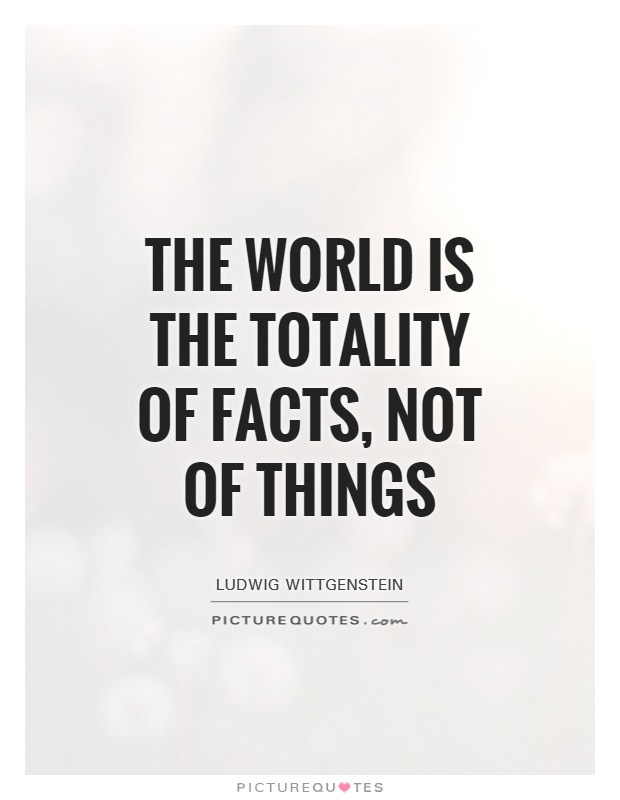The world is the totality of facts, not of things

The world is the totality of facts, not of things
Ludwig Wittgenstein, one of the most influential philosophers of the 20th century, is known for his groundbreaking work in the philosophy of language and logic. One of his most famous statements is "The world is the totality of facts, not of things." This statement encapsulates Wittgenstein's view that the world is not made up of individual objects or entities, but rather of the relationships and connections between these objects.Wittgenstein's philosophy is deeply rooted in the idea that language is the key to understanding the world. He believed that language is not simply a tool for communication, but a fundamental part of how we perceive and interact with reality. In his early work, Wittgenstein argued that language is a system of rules and conventions that govern how we use words and concepts to represent the world. He famously stated that "The limits of my language mean the limits of my world."












 Friendship Quotes
Friendship Quotes Love Quotes
Love Quotes Life Quotes
Life Quotes Funny Quotes
Funny Quotes Motivational Quotes
Motivational Quotes Inspirational Quotes
Inspirational Quotes